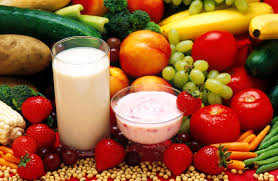 Protein is an important part of a healthy diet of everyone, and especially a senior, for a number of reasons, including maintaining muscle. Since you might not always get enough of it in your diet, your body and health could be suffering. This is especially true if you are a vegetarian.
Protein is an important part of a healthy diet of everyone, and especially a senior, for a number of reasons, including maintaining muscle. Since you might not always get enough of it in your diet, your body and health could be suffering. This is especially true if you are a vegetarian.
When it comes to the exact amount of protein we actually need, experts provide us with advice. First though, it’s essential to understand why we need adequate protein intake.
Why Do We Need Protein?
If you are committed to wellness, you are committed to your body. Proteins are your body's primary building blocks. Protein is used by your body to make tendons, muscles, skin, and organs. It also helps to make your hormones, enzymes, neurotransmitters and other types of molecules that serve essential functions. You just couldn't survive without protein.
So, why do you need protein? You need it because it’s crucial for just about all your body functions. However, not many people really know the exact amount they are getting each day or even how much they are supposed to get. The Dietary Reference Intake (DRI) is around 0.8 grams of protein for every kg of body weight. This generally amounts to around 46 grams of protein for women a day and 56 grams of protein for men, both living primarily a sedentary lifestyle.
Do You Get Enough Protein in a Regular Balanced Meal?
You might not get enough in one meal, but according to the Centers for Disease Control and Prevention (CDC), eating a healthy diet includes a variety of foods such as:
- whole grains
- fish
- low-dairy foods
- fruits
- vegetables
- low-fat dairy foods
- lean meats
- beans
- poultry (like chicken or turkey)
Not all people will require the same amount either. For instance, pregnant women require around 10 more grams each day of protein than before becoming pregnant.
What About if You Are a Vegetarian?
For vegetarians, try not to think of getting more protein as eating more meat. Meats do provide high-quality protein, especially lean meats, but so do certain plant foods like beans and nuts.
What are Alternatives?
Good sources of protein according to Harvard Health include:
- 6 oz. Greek yogurt (17 grams)
- 1/2 c cooked beans (8 grams)
- 1/2 c cottage cheese (14 grams)
- 1 c milk (8 grams)
- 1 c pasta cooked (8 grams)
- 1 egg (6 grams)
Just remember, how much protein the older adult should be eating will not always be the same. It also depends on your caloric needs, activity level, and medical conditions. You don't want to get too much protein either as that could have negative effects, such as kidney problems and dehydration.
Eskaton offers fine dining and cafe options to help residents achieve a healthy diet complete with adequate protein. For more information about Eskaton dining options and other offerings, contact us at (888) 684-6554.

